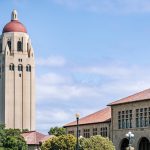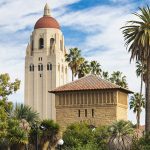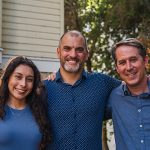IPL executive director Duncan Lawrence talks with graduate fellow Salma Mousa about soccer as a research tool, new motherhood, and her experiences as an immigrant in four countries.
Duncan Lawrence: Welcome to IPL Origin Stories, Salma.
Salma Mousa: Thanks for having me!
DL: Let’s start with your childhood. Take me through a day in your life when you were seven years old.
SM: When I was seven, I was in my second year of living in Toronto, after moving there from Saudi Arabia. At the time I was still getting acclimated. My parents initially had put my sister and me in an Islamic school, because they wanted to give us some consistency. But then they switched us over to public school, and I really liked it.
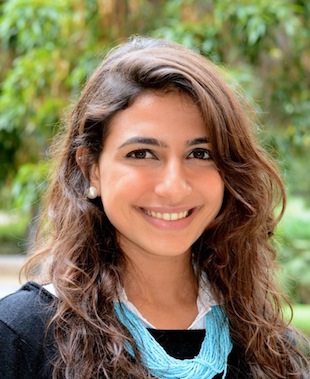
So a regular day would be walking to school with my mom and sister, having a swimming lesson after school, and looking at my Pokemon cards.
DL: So you moved to Toronto from Saudi Arabia—what other places were important during your childhood?
SM: I was born in Cairo, but I never really lived there. We moved when I was six months old, but I’ve spent nearly every summer there. That’s where all my family live, except for my parents and sister. From there we went to Saudi Arabia, and moved around a lot within the country. And then Toronto when I was four and back to Saudi Arabia when I was ten.
Then, the situation wasn’t safe where we were, so we moved to Abu Dhabi when I was 13.
DL: What were some of the starkest differences between life in Saudi and life in Toronto?
SM: One thing was the difference in the physical environment. In Canada we were immersed in nature, we spent a lot of time outside and went camping, and it was normal to walk places. There was greenery everywhere. In Saudi Arabia, life was entirely contained inside these residential compounds. There was the compound, the beach, school, and one mall. Other than that, there was nowhere else to be outside of your house.
And the other thing had to do with identity. When I went on trips to Saudi Arabia and described myself as Egyptian-Canadian, people there would ask, “Well, which of your parents is Canadian?” But in Canada, no one would ever ask me that question—it was just accepted that I was equally Canadian. When I was surrounded by people from the Middle East, I was just Egyptian.
DL: For those of us whose image of Saudi Arabia is mostly shaped by Western media, can you tell us more about what it’s really like?
SM: Within the compound, the regular rules of society don’t really apply. You can dress however you want, and there are restaurants, cafés, and swimming pools. It’s like a bubble just for foreigners to live in. When you’re a kid, it’s a fun, safe environment where your parents don’t really need to check up on you.
When you leave the compound, you have to abide by society’s rules, and that’s where you get a reality check. When I was around 12, my parents said I had to start wearing the abaya when I went out. I remember feeling uncomfortable with that, though I eventually came around to how easy it was to wear pajamas underneath the big robe. But it was weird to know that I was now seen as an adult in society and had to dress like the other adult women.
At the time, my mother worked at the Canadian Embassy, since foreign embassies were the only places where women worked. She took it in her stride, but life was pretty restrictive, and she couldn’t drive.
DL: You’re now in your fifth year here at Stanford, studying political science and working in issues around migration. When you think about your personal experience, how much is it a driving factor in the work you do, and how has your motivation evolved since you started grad school?
SM: When I started grad school, my plan was to study the Middle East, and it still is—it’s the country setting for a lot of the work I do. But over time, I realized that I’m also an immigrant, and that’s a salient experience for me. So I became more interested in migration and integration, and specifically how to measure integration. In the Middle East, standard measures don’t really apply, like intermarriage or immigrants’ choice of names for their children.
DL: Stanford is a pretty unique place in that class sizes are measured in the tens rather than the hundreds. In the state university system an intro class could have a few hundred students. So imagine you had to give lectures to a big auditorium with all those students, with a little Justin Timberlake-style microphone earpiece. What topics would you cover?
SM: The first would have to be something on inter-group contact, the classical theory of how contact across social lines affects people’s attitudes. I’d talk about how I’ve been able to apply the theory in lots of different settings where it hasn’t been tested experimentally before and manipulated in a more rigorous way. I’d focus on contact between Muslims and non-Muslims in the Middle East, because I think that’s unique.
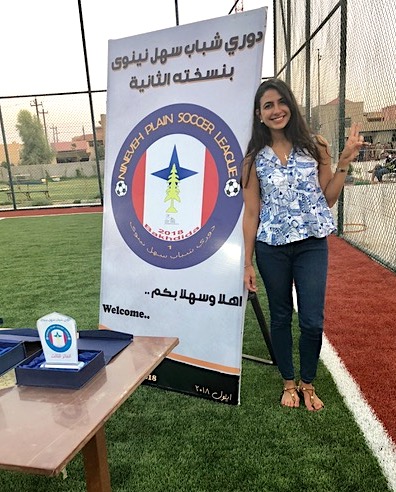
The second lecture would cover measuring integration in creative new ways. I like to brainstorm around different outcomes—behavioral, attitudinal—and different settings people haven’t explored before. So I’d walk the audience through a case and ask what it really means for people to be integrated, to actually like each other, and how we can measure that systematically.
The third would be about using everyday settings, like soccer leagues, as leverage to measure things in an experimental way. Somehow all my papers have ended up being about soccer in one way or another! That lecture would discuss how to build partnerships with NGOs and successfully implement a study people will care about.
DL: One of the challenging things about pursuing a PhD is that you’re immersed in your own world. When I was going through it, I didn’t share details about my work with people outside my program, because it didn’t seem like they’d find it interesting, especially the science side of things. What’s one thing about your work that you wouldn’t usually share with your mom, but would share if you could sit down with her and really explain what’s going on?
SM: I generally avoid explaining causal inference with her. For example, I worked with others at IPL to study how the famous Muslim soccer player Mohamed Salah might be promoting tolerance. My mom loves him, since he’s a fellow Egyptian and a good role model who she thinks is changing people’s opinions about Muslims.
So my mom actually asked to read our paper, but stopped when she saw that it was 50 pages long. And I wish I had explained to her that we’re actually getting at the causality of whether he’s improving attitudes, and testing mechanisms with a survey experiment that gives people different primes and measures how much they shift people. We don’t just ask whether he’s making things better; we ask how that phenomenon is working. My mom could intuitively see that something is going on, but she wouldn’t think to ask about the micro-foundations of attitude change.
DL: Why is it that people in our nerdly little world care so much about that? The vast majority of the public does not—most people would just accept it if you said, “we conducted a survey, and it’s quite apparent that Mo Salah has improved attitudes toward Muslims.”
SM: One reason is that we see ourselves as scientists, and there’s a process to science that we want to uphold. The other reason is that we want to say something generalizable about human behavior. We want to be able to discover a mechanism so that it can be applied to other settings. We want to know what kind of intervention to home in on for the next round. But overall, I think we’re overconfident about our ability to measure those microscopic things.
DL: The past several years in the United States arguably have been especially challenging for immigrants, Muslims, and minorities in general. Has this affected you on a personal level?
SM: When the election first happened, I was shocked, but I didn’t immediately worry about what might happen to me, maybe because I have many other privileges, the main one being a Canadian passport. As time went on, I saw that it was affecting a lot of other people, often in horrifying ways. And it affected my projects at IPL, since we work with refugee resettlement agencies to run studies. As you know, our projects have basically been stopped in their tracks, because there aren’t enough new arrivals. We put in a year’s worth of work, and there literally are no refugees to be enrolled in the program anymore. That was very depressing and frustrating.
And then there was the Muslim ban. That felt like a line had been crossed, and I hadn’t thought something that brazen could happen. I started to worry about my mom’s visits to Texas, where her company is based, since she wears a headscarf. Hate crimes were increasing, and I think about that on big holidays like Eid. Normally I go to the mosque for that, but now there’s a moment of hesitation because days of prayer are targets. Of course, attacks are still very rare, but now there’s a voice in my head saying, “maybe just sit this one out and pray at home.”
And now that I’m pregnant, this climate is affecting how I think about naming my son. Should he have a name that flags his Muslim heritage? In principle I don’t want to concede that, but the decision feels consequential now. At the same time, I have a lot of advantages that others don’t have, and I can live day to day as normal and still take advantage of opportunities.
DL: When you think about becoming a mom, what scares you the most, and what are you most excited about?
SM: What I’m excited about is seeing what he looks like! I’m so curious, and I don’t have a lot of reference points.
The root of the fear is just that it’s so unknown. Not many of my friends are in the same phase, so I’m learning everything from scratch and from my mom—but her information is kind of outdated now. I guess the main fear is just that I’m not getting the memo on some important thing I’m supposed to be doing with my child.
And also, my son will have so many different elements in his heritage. I wonder if his background will get whitewashed and he’ll end up just being American. That would be okay! America’s good at integrating people. But I wonder if he’ll be able to incorporate everything in the idealistic way I would hope for. It’s a lot to ask.
DL: Thanks for sharing your story, and best wishes for your next chapter.
SM: Thanks for having me.


